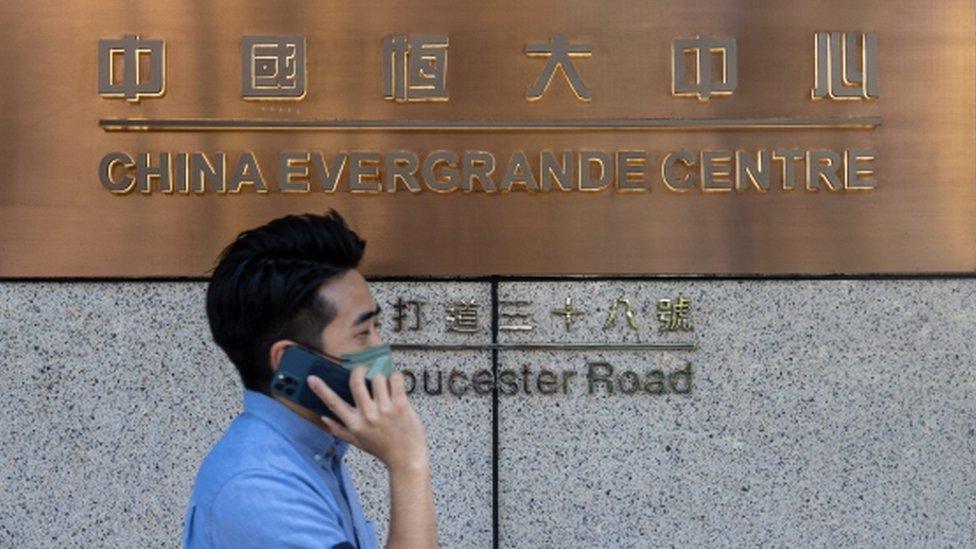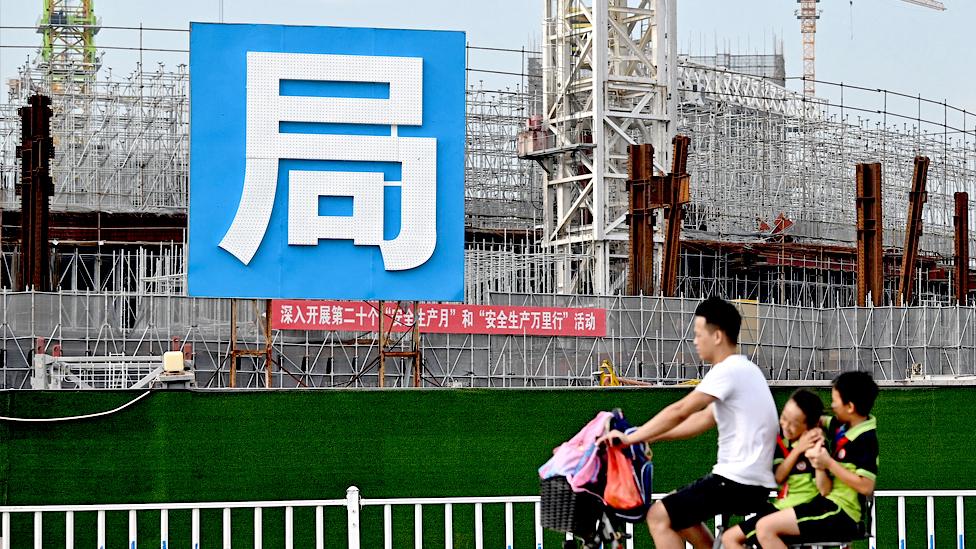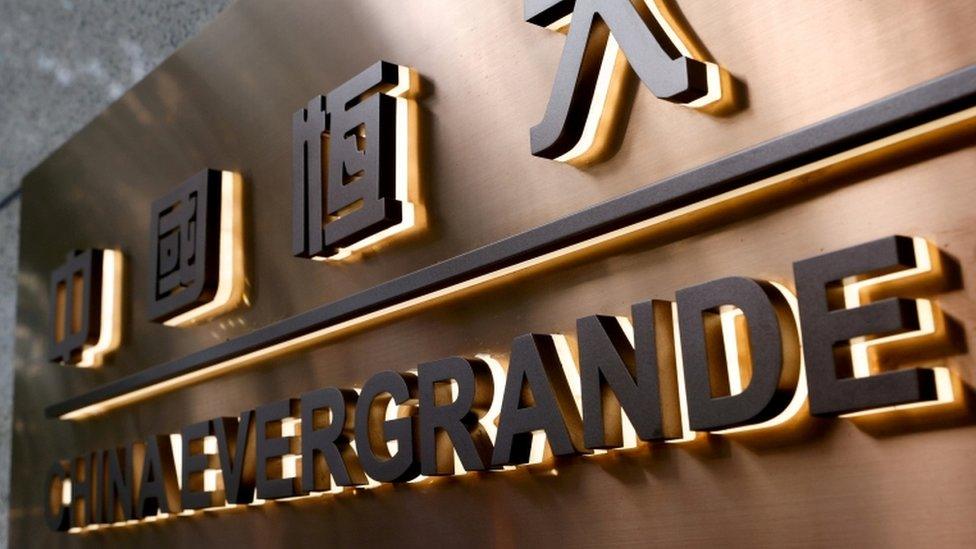Evergrande shares slump on renewed default fears
- Published

Fears about the future of Chinese property giant Evergrande Group have returned amid news it could default on its latest debt repayment.
Shares in the company, whose crisis has rippled through the wider property and banking sectors, plunged up to 20% on Monday to a record low.
In a statement over the weekend, Evergrande said it could not guarantee "to perform its financial obligations".
It has liabilities of £300bn (£226bn), including to firms outside China.
There were reports the property developer's billionaire founder Hui Ka Yan was summoned by Chinese officials to explain the latest situation.
Evergrande's statement said: "In light of the current liquidity status of the group, there is no guarantee that the group will have sufficient funds to continue to perform its financial obligations.
"The company received a demand to perform its obligations under a guarantee in the amount of approximately $260m.
"In the event that the group is unable to meet its guarantee obligations or certain other financial obligations, it may lead to creditors demanding acceleration of repayment."
Conita Hung, investment director at Tiger Faith Asset Management, said that despite Evergrande trying to sell assets for months in an attempt to repay debts, the latest statement suggested the company was going to "surrender and need help".
"This sends a very bad signal," she said, adding that Evergrande's problems will take years to resolve even with help from the Chinese government.
Over the weekend, the central bank, banking and insurance regulator and securities regulator also released statements, saying risk to the property sector could be contained.
China's booming housing and commercial property market prompted Xi Jinping's government in Beijing to restrict reckless lending to a sector that some experts feared faced collapse.
Evergrande was one of a number of developers starved of cash due to the regulatory curbs on borrowing, but this led to offshore debt defaults, credit-rating downgrades and sell-offs in developers' shares and bonds.
To stem the turmoil, in October regulators urged banks to relax lending for developers and allow property firms to raise more money from investors.
On Monday, smaller property developer Sunshine 100 China Holdings said it had defaulted on a $170m debt payment "owing to liquidity issues arising from the adverse impact of a number of factors including the macroeconomic environment and the real estate industry".
- Published29 January 2024

- Published18 November 2021
